Basic arithmetic practice Easy Worksheets for Ages 4-7
5 filtered results
-
From - To
Discover the perfect resource for young learners with our Basic Arithmetic Practice Easy Worksheets, designed for ages 4-7! These engaging printables foster early math skills by introducing fundamental arithmetic concepts such as addition, subtraction, counting, and number recognition. Tailored to captivated developing minds, each worksheet is visually appealing and offers age-appropriate challenges to keep your child motivated and enthusiastic about learning. Boost your little one’s confidence and foundational math abilities with our specially crafted worksheets, laying the groundwork for future success in mathematics. Ideal for preschool and early elementary students, these activities make learning fun and effective!
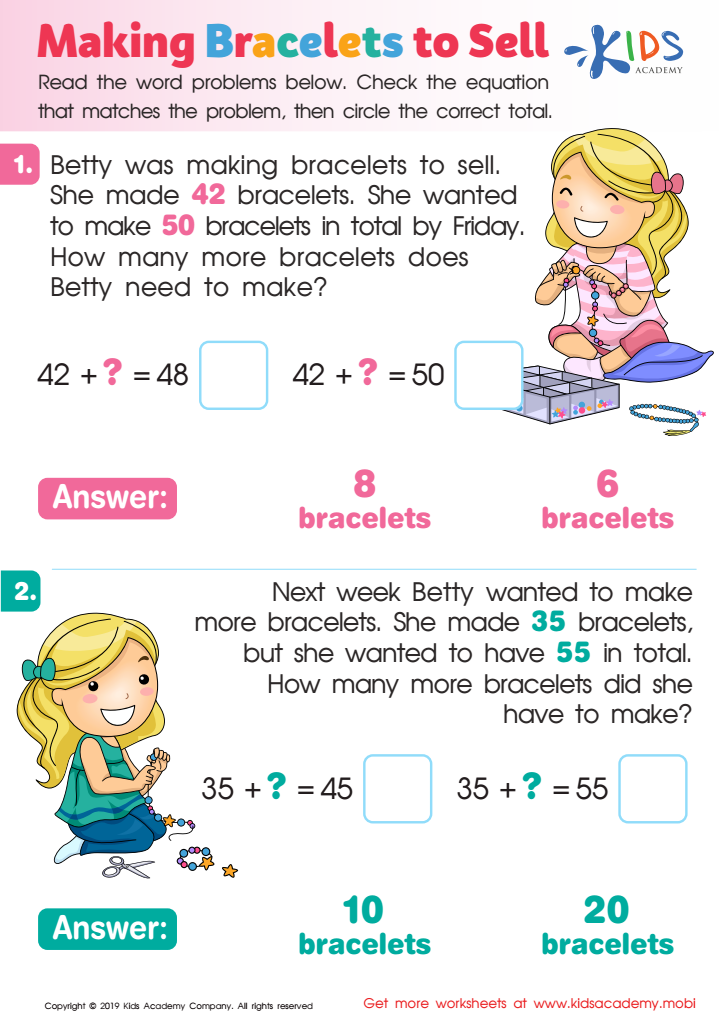

Making Bracelets to Sell Worksheet
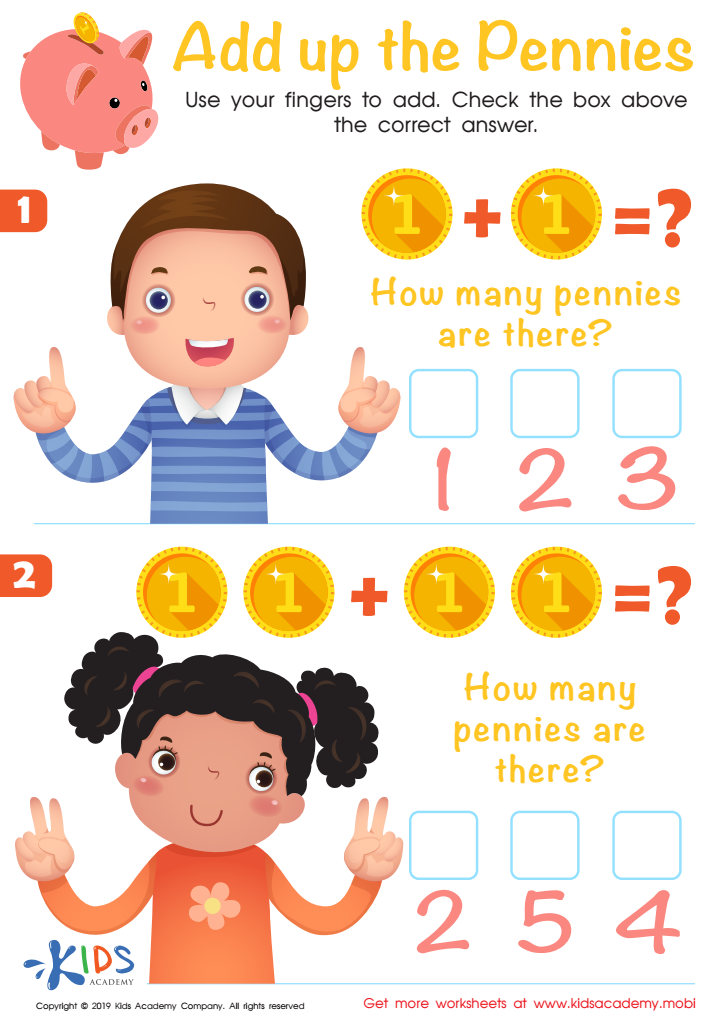

Add up the Pennies Worksheet
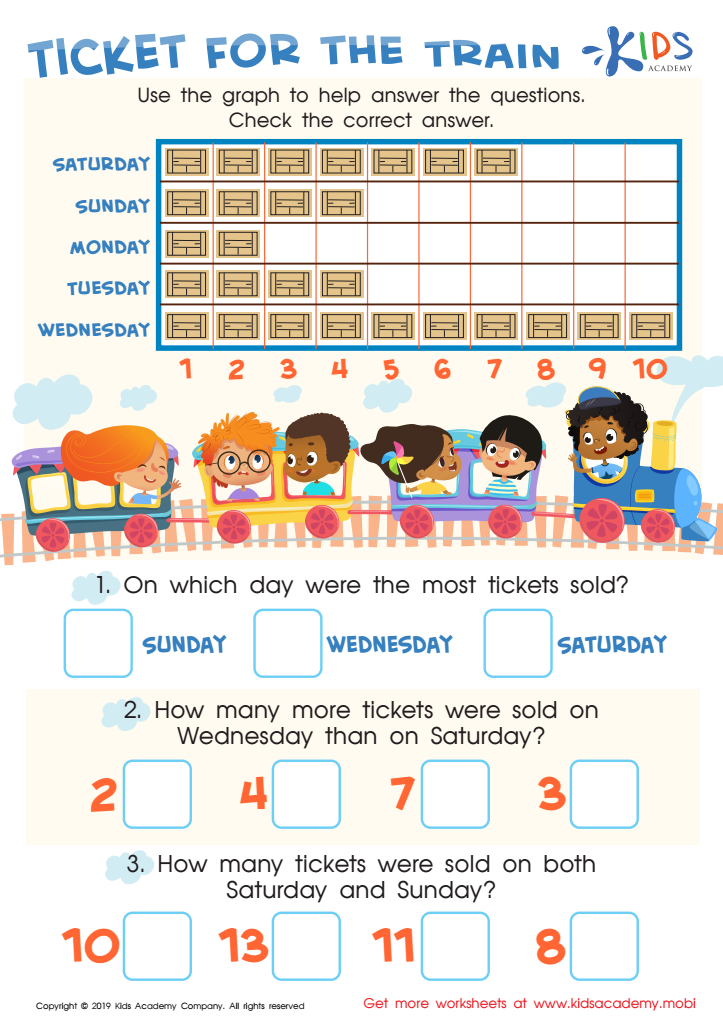

Ticket for the Train Worksheet
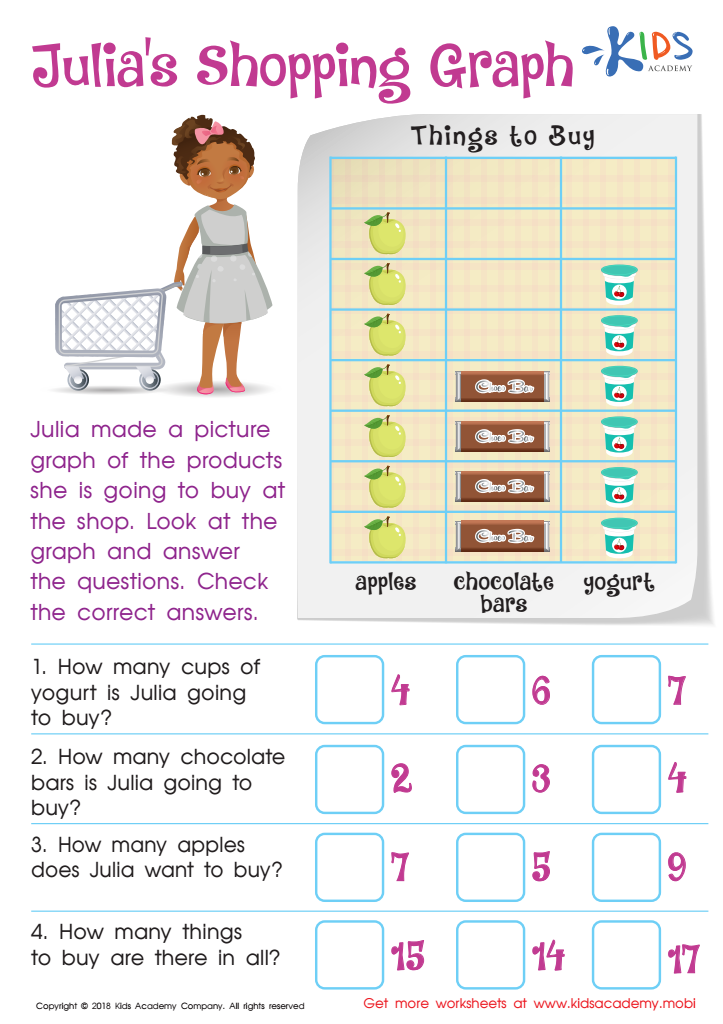

Julia's Shopping Graph Worksheet
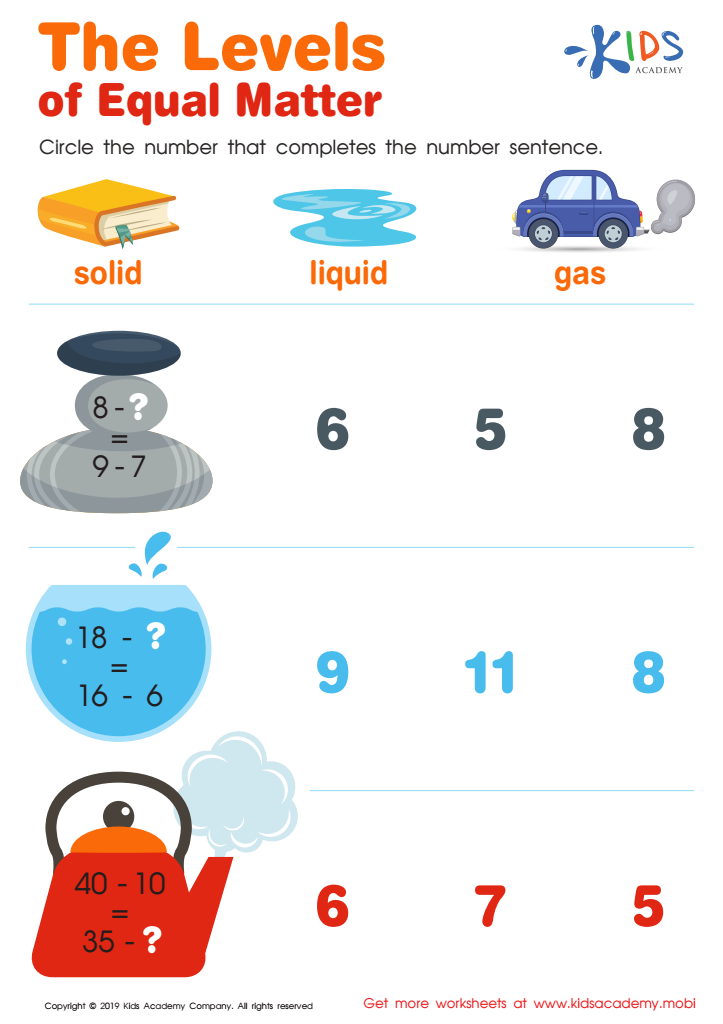

The Levels of Equal Matter Worksheet
Basic arithmetic practice is foundational for children ages 4-7, providing numerous benefits essential for future academic success and everyday life skills. At this early stage, children’s brains are highly receptive to learning new concepts, making it the ideal time to introduce fundamental math skills. These skills, including counting, addition, subtraction, and basic number sense, form the basis for more advanced math and logic techniques they will encounter in later years.
Introducing young children to arithmetic helps develop critical thinking and problem-solving abilities. When kids practice basic math, they learn to approach problems methodically, boosting their analytical skills. This foundational knowledge also promotes confidence; children who master early arithmetic tend to feel more assured when tackling more complex subjects in school.
Furthermore, arithmetic skills are necessary for daily life. From understanding time to making sense of money, measuring ingredients in a recipe, or even dividing toys among friends, basic arithmetic is omnipresent. By mastering these skills early, children are better equipped to handle real-life situations.
Engaging arithmetic practice that is fun and simple will improve cognitive development, foster a love for learning, and lay the groundwork for a positive attitude toward mathematics during the critical developmental years of ages 4-7. Therefore, both parents and teachers should prioritize and actively encourage early arithmetic practice.
 Assign to My Students
Assign to My Students






.jpg)












